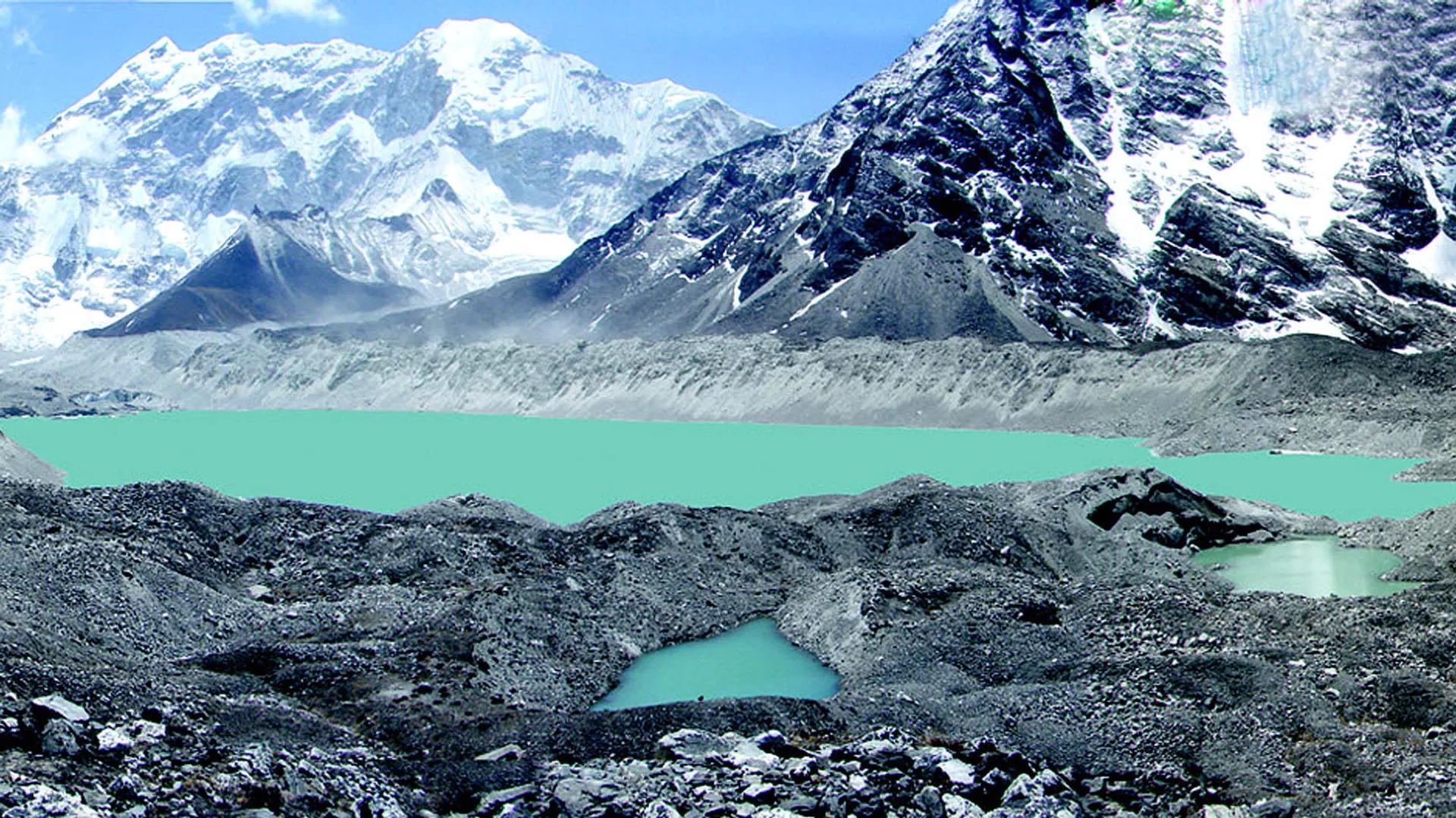Africa-Press – Lesotho. The recently-published report also found that glaciers in the Hindu Kush and Himalaya mountain range region melted 65% faster in the 2010s compared to the previous decade.
Glaciers in Asia’s Hindu Kush Himalaya could lose up to 80% of their volume by the end of the century, a development expected to cause dire effects on the freshwater millions of people rely on, a new report has revealed.
A report published by Kathmandu-based International Centre for Integrated Mountain Development (ICIMOD) on Tuesday revealed the melting glaciers could result in an increase of flash floods and avalanches in the region.
It outlined that the great melt would also cause fresh water shortages for 240 million people, as well as the 1.65 billion people who rely on the 12 downstream rivers that come from those mountains.
“The people living in these mountains who have contributed next to nothing to global warming are at high risk due to climate change,” said Amina Maharjan, a migration specialist and one of the authors of the study.
“For them, this is home, and their livelihoods are mostly dependent on agriculture, livestock, tourism, and medicinal and aromatic plants,” Maharjan adds.
The report adds that the Himalayan communities are being affected by climate change more so than in any other part of the world, and the melting of its glaciers, snow and permafrost are “unprecedented and largely irreversible.
“Once ice melts in these regions, it’s very difficult to put it back to its frozen form,” said Pam Pearson, director of the International Cryosphere Climate Initiative.
Despite the US rejoining the Paris Agreement in 2021, the nation, as well as China, continue to be Earth’s worst polluters and have continued to bulldoze ahead with new fossil fuel projects, according to one report.
Just last year, China approved permits for 168 coal-fired power plants and in early March of this year, the Biden administration approved a large scale oil drilling project in Willow, Alaska.
Experts warn that if the ongoing fossil fuel projects are not halted, they will produce enough carbon dioxide to warm the planet about 2 degrees Celsius this century.
For More News And Analysis About Lesotho Follow Africa-Press






